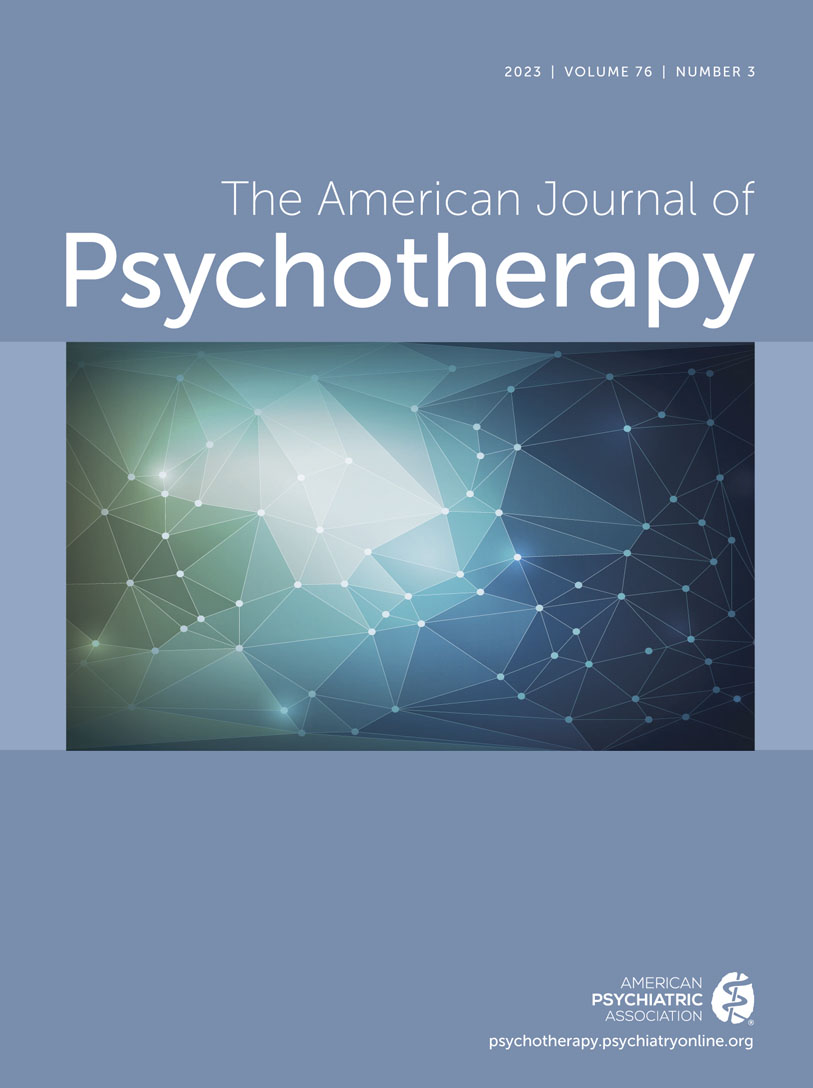American Journal of Psychotherapy
- Volume 60
- Number 2
- April 2006
Articles
Publication date: 01 April 2006
Pages111–129This article describes Janet’s concept of psychological trauma and the formation of rigid thought complexes (fixed ideas). This concept forms the basis for Janet’s functional nosology of the neuroses, and is related to his dynamic psychology of conduct or ...
https://doi.org/10.1176/appi.psychotherapy.2006.60.2.111Publication date: 01 April 2006
Pages131–145The intent of this paper is to examine the inherent contradictions in the practice of psychotherapy that, if left unexamined, ruin the emancipatory prospects that it holds. Critical theory and, more specifically, Jurgen Habermas’ theory of communicative ...
https://doi.org/10.1176/appi.psychotherapy.2006.60.2.131Publication date: 01 April 2006
Pages147–152During the last several decades, brief psychotherapeutic approaches to mental health treatment have become increasingly prevalent. This paper describes brief psychotherapy and provides a brief review of the relevant empirical literature. Therapists who ...
https://doi.org/10.1176/appi.psychotherapy.2006.60.2.147Publication date: 01 April 2006
Pages153–159The psychiatric consultation has not been adequately exploited as a therapeutic device. Although, the original abstinent model for psychodynamic psychotherapy has become more flexible, passive listening with interventions to elicit diagnostic “data” ...
https://doi.org/10.1176/appi.psychotherapy.2006.60.2.153Logotherapy as an Adjunctive Treatment for Chronic Combat-related PTSD: A Meaning-based Intervention
Publication date: 01 April 2006
Pages161–174Combat-related Post-traumatic Stress Disorder (PTSD) is often highly debilitating and affects nearly all areas of psychosocial functioning. Veterans with PTSD re-experience their traumas in the form of haunting intrusive memories, nightmares and ...
https://doi.org/10.1176/appi.psychotherapy.2006.60.2.161Publication date: 01 April 2006
Pages175–185Objective: In psychiatry education, psychotherapy knowledge, skills, and attitudes are new competency objectives. Methods: Two faculty members independently ranked psychiatry residents for psychotherapy competency. A rank of 1 indicated the most ...
https://doi.org/10.1176/appi.psychotherapy.2006.60.2.175Publication date: 01 April 2006
Pages187–205Every day psychotherapists are called upon to assuage and give meaning to human suffering. This report examines the ways in which therapists and patients’ attitudes towards giving and receiving “pity” can advance or interfere with the realization of these ...
https://doi.org/10.1176/appi.psychotherapy.2006.60.2.187Book Review
Publication date: 01 April 2006
Pages208–210https://doi.org/10.1176/appi.psychotherapy.2006.60.2.208aPast Issues
View Issues Archive
Vol. 77 | No. 2

Vol. 77 | No. 1

Vol. 76 | No. 4
